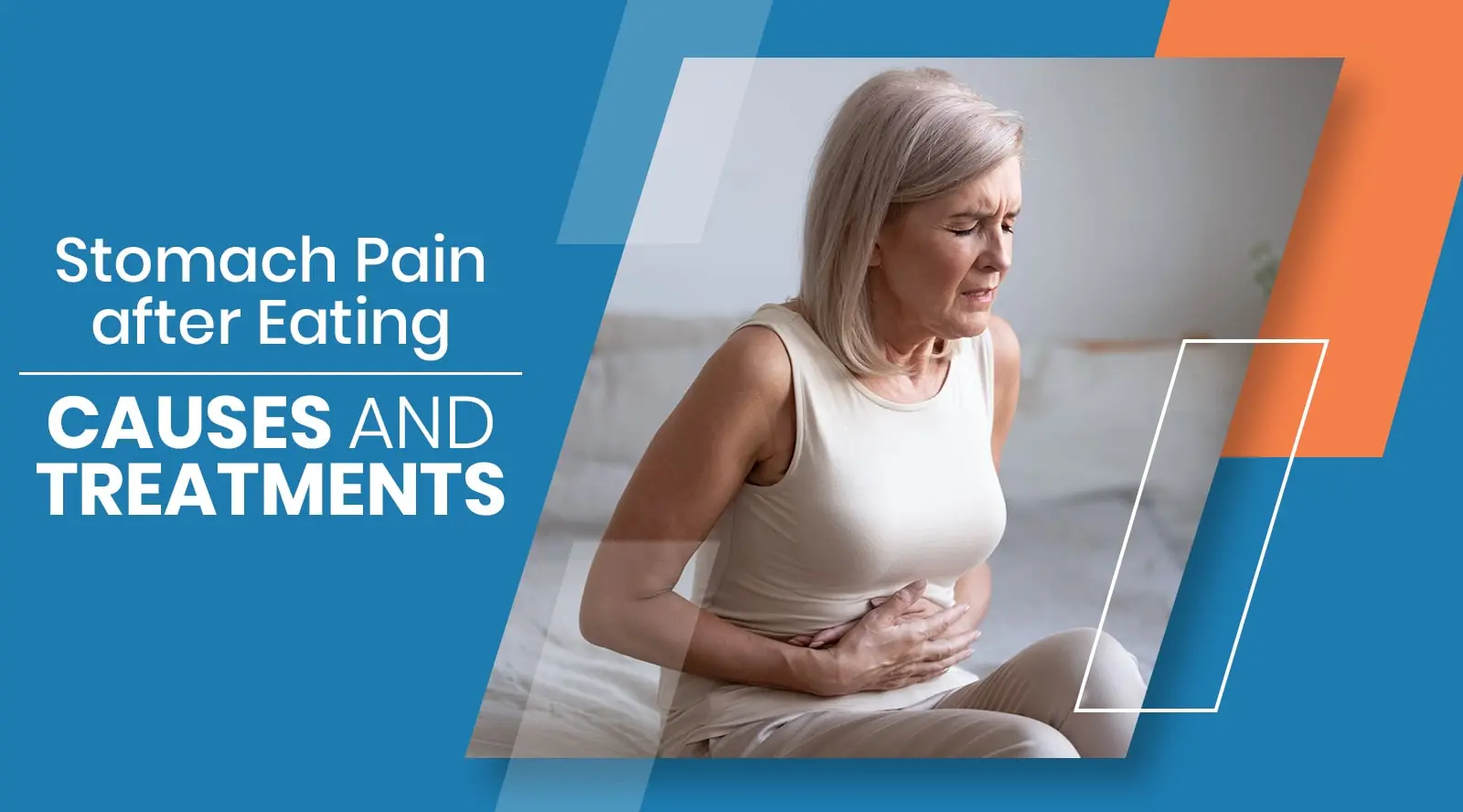Stomach Pain after Eating: Causes and Treatments

01 Nov 2023
Experiencing discomfort in your stomach after a meal can be quite unsettling. While food allergies in adults are somewhat rare, overeating, indigestion, gallstones, and food intolerances are among the frequent culprits of abdominal pain. This pain might even radiate up to the rib areas, manifesting as feelings ranging from mere fullness to significant tightening.
Occasional bouts of abdominal pain might not be alarming, but if such discomfort becomes regular after meals, consulting a doctor is the best course of action. Persistent pain may signal underlying digestive disorders requiring treatment.
Causes:
- Gastroesophageal reflux disease (GERD): This ailment surfaces when stomach acid irritates the oesophageal lining, leading to pain and heartburn. Common triggers include excessive consumption of spicy foods, caffeine, or alcohol. Reducing intake of these triggers and considering over-the-counter medications can provide relief.
- Coeliac disease: An autoimmune response to gluten, coeliac disease can manifest as post-meal stomach pain. It’s worth noting that a mild gluten intolerance is distinct from coeliac disease. Consultation with a doctor can help determine the necessary tests and interventions.
- Irritable bowel syndrome (IBS): This intestinal disorder can cause severe stomach pain, constipation, gas, and diarrhoea. If your post-meal discomfort is coupled with these symptoms, consider seeking medical guidance.
- Crohn’s disease: This inflammatory bowel ailment can affect any segment of the gastrointestinal tract. Symptoms can range from mild to severe, including abdominal pain, decreased appetite, and fatigue. The cause remains elusive, but both diet and genetics are thought to play roles. Management requires a comprehensive approach, often involving medication, dietary adjustments, and sometimes surgery.
- Small intestinal bacterial overgrowth (SIBO): SIBO arises when harmful bacteria dominate the small intestine, disrupting digestion and leading to symptoms like abdominal pain and bloating post meals.
- Gastroparesis: Characterised by the delayed emptying of the stomach, this condition can result in prolonged digestion times, leading to cramps, spasms, and even nausea.
Symptoms:
- Abdominal cramps
- Acid reflux
- Arm discomfort
- Bloating
- Nausea
- Upper abdominal pain
- Diarrhoea
- Gas
- Early satiety during meals
- Regurgitation
- Vomiting
Seek immediate medical attention for intense stabbing pains or dehydration symptoms.
Diagnosis:
Doctors primarily rely on symptom descriptions by the patient. However, tests like CT scans, colonoscopy, blood tests, and endoscopy can further aid diagnosis.
Treatments:
For milder cases, home remedies like a light diet and hydration can suffice. More severe cases may require medications, surgeries, or specialised therapies.
Complications:
The repercussions of untreated stomach pain can range from the severe allergic reactions of food allergies to the complications associated with GERD or Crohn’s disease.
Prevention and Improving Digestive Health:
- Avoid known problematic foods.
- Practise portion control.
- Adopt a fibre-rich diet.
- Stay hydrated.
- Consume probiotics.
- Ensure adequate sleep.
- Engage in regular exercise.
- Limit antibiotic use.
Book a consultation with your private doctor if you face recurring discomfort. Early diagnosis is paramount for effective treatment. If you experience intense pain coupled with symptoms like fever, chills, or rapid heart rate, seek immediate medical assistance.
Remember, while a high-fibre diet is often recommended for digestive health, overconsumption might exacerbate bloating and pain. Consulting a trusted physician will help you find the right balance.


